The Kenya Airports Authority (KAA) is facing criticism over its treatment of online taxi drivers operating at Mombasa Airport.
Drivers have raised serious concerns about unfair policies, limited parking spaces, excessive fees, and general harassment, which they claim have made their work environment increasingly difficult, this rot has been brought up by Cyprian Is Nyakundi through his X handle.
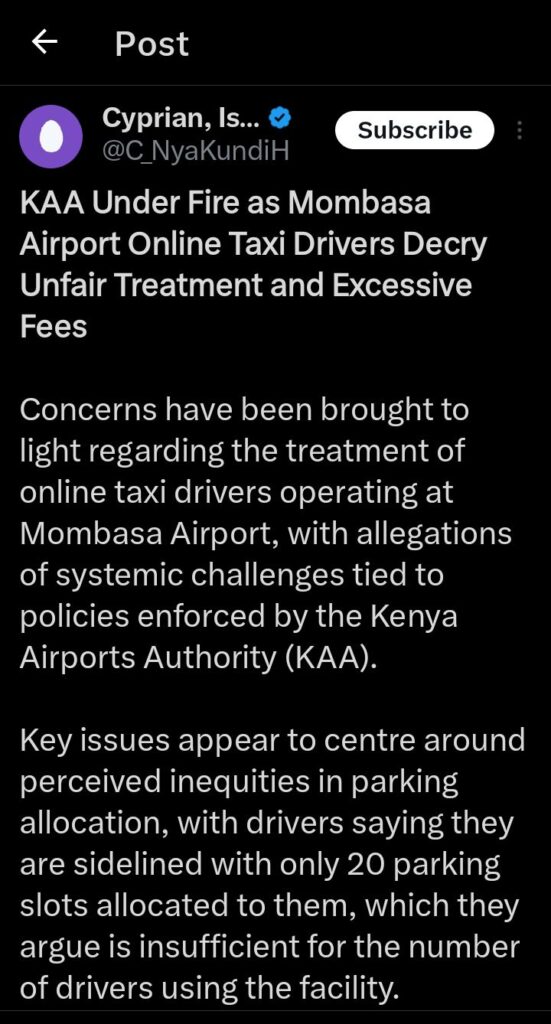
A key issue highlighted by the drivers is the allocation of parking slots.
According to Nyakundi’s expose, they argue that the 20 slots provided for online taxis are grossly inadequate given the high number of drivers serving the airport daily.
Unlike yellow cabs, which are reportedly given more favorable treatment, online drivers must navigate constant challenges due to the limited parking.
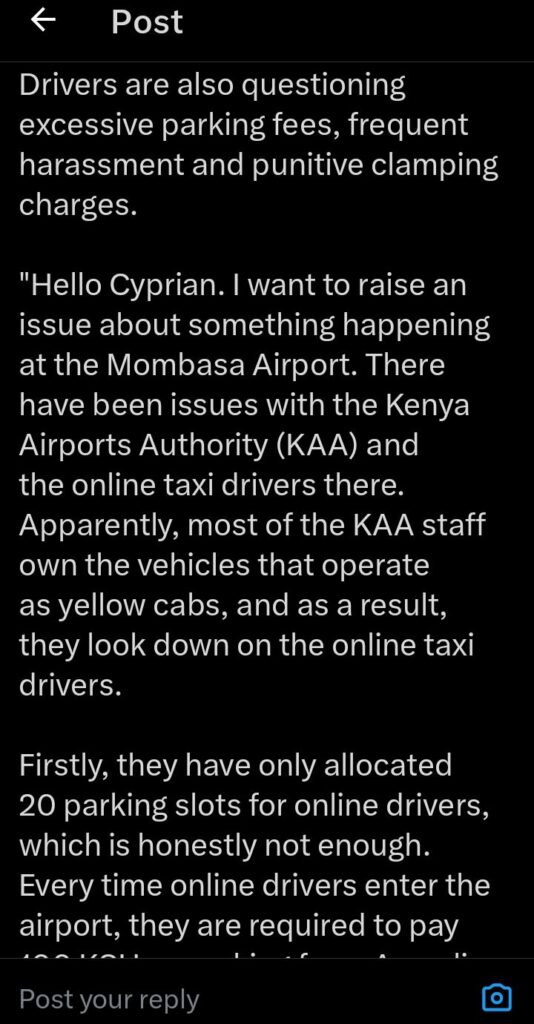
Drivers point out that the spaces are not permanent as they come and go frequently, making the current allocation unworkable for their operations.
Additionally, drivers are frustrated by the high parking fees imposed by KAA. They are required to pay Ksh 100 each time they access the airport, often making three to five trips daily.
This adds up to big expenses that eat into their earnings. While the fees generate substantial revenue for KAA, drivers feel the charges are disproportionate and unfair, especially given the limited support they receive in return.
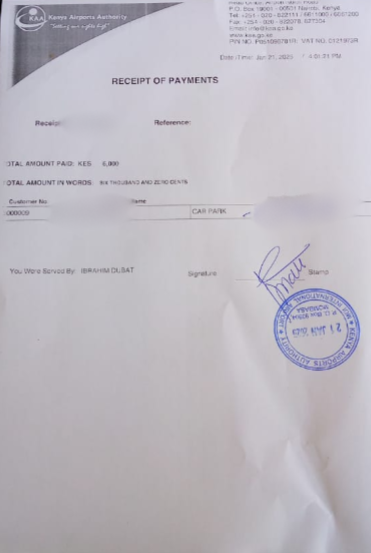
Another major complaint is the frequent harassment and punitive measures directed at online taxi drivers.
Reports of clamping and fines have been common, further straining relations between the drivers and KAA staff.
Drivers allege that these actions are not applied equally and are instead targeted specifically at online taxis.
One driver, while sharing his frustrations, noted that most of the yellow cabs operating at the airport are owned by KAA staff.
This has raised concerns about conflict of interest and bias, with many believing that the policies favor yellow cabs to the detriment of online taxi drivers.
The driver also revealed that attempts to address these grievances have been met with indifference.
A meeting held recently to discuss the issues reportedly yielded little progress, as KAA staff appeared unresponsive to the concerns raised.
The drivers argue that KAA’s policies and attitudes towards them are not only unfair but also hinder their ability to provide efficient services to passengers.
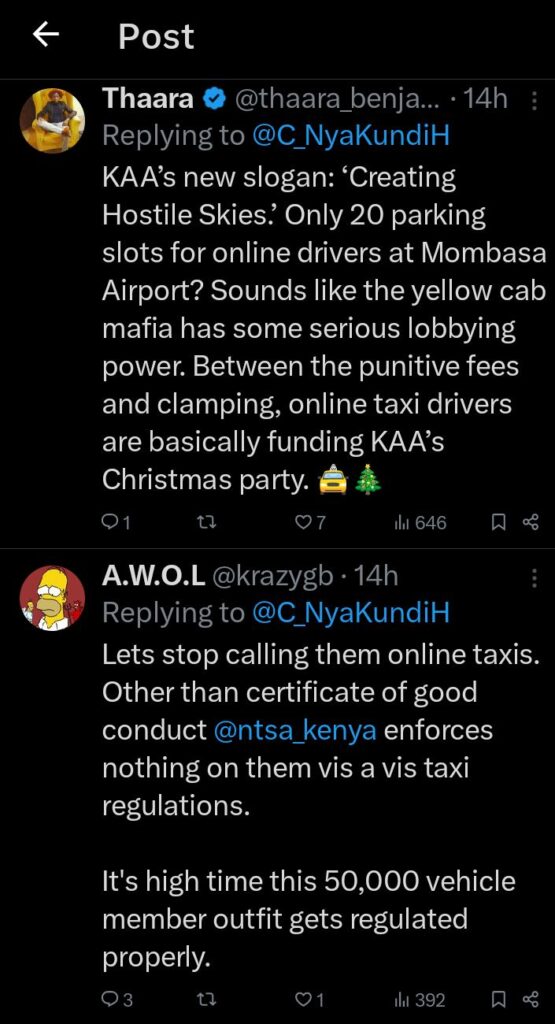
They are calling for immediate action to increase parking slots, lower fees, and ensure equal treatment of all taxi operators at the airport.
The situation at Mombasa Airport highlights broader concerns about how public institutions handle private operators in the transport sector.
Unless these issues are addressed, the strained relationship between KAA and online taxi drivers is likely to persist, further affecting airport operations and passenger experiences.







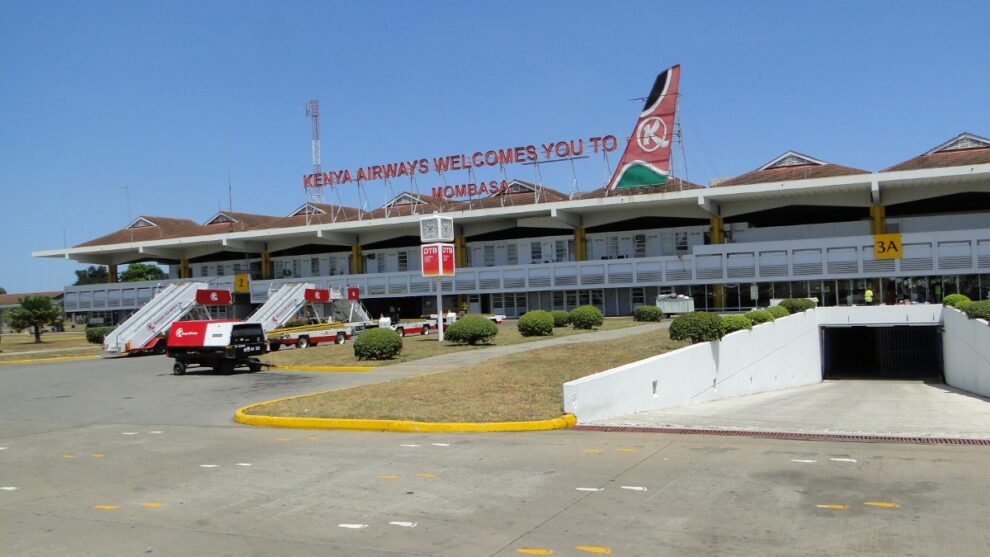













Add Comment